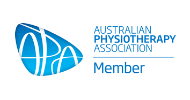
Tension headaches are a common type of headache that many people experience. They can be quite debilitating and can interfere with daily activities. In this article, we will delve deeper into what tension headaches are, their causes, symptoms, and how to manage them effectively. We will also discuss when it is necessary to seek medical help and provide some tips for preventing tension headaches.
What are Tension Headaches?
Tension headaches, also known as stress headaches, are the most common type of headache. They are characterized by a dull, aching pain that feels like a tight band around the head or pressure at the temples or back of the head. The pain can range from mild to moderate and can last from a few hours to several days. Tension headaches can occur episodically, meaning they occur less than 15 days per month, or chronically, meaning they occur more than 15 days per month for at least three months.
Causes of Tension Headaches
The exact cause of tension headaches is not known, but several factors can contribute to their development. These include:
- Stress: Stress is a major trigger for tension headaches. When we are stressed, our muscles tense up, including those in the neck and scalp, leading to a headache. This can be due to emotional stress, such as work-related stress or personal problems, or physical stress, such as fatigue or illness.
- Poor posture: Sitting or standing in a slouched position for extended periods can strain the muscles in the neck and head, leading to tension headaches. This is especially common in people who work at a desk or use a computer for long periods.
- Eye strain: Staring at a computer screen or reading for long periods can strain the eyes and contribute to tension headaches. This is because the muscles that control eye movement can become tired and overworked, leading to a headache.
- Lack of sleep: Not getting enough sleep or poor quality sleep can increase the likelihood of tension headaches. Sleep deprivation can cause the muscles in the head and neck to tense up, leading to a headache.
- Jaw clenching or teeth grinding: These habits can put strain on the muscles in the head and neck, leading to tension headaches. This is often a subconscious behavior that occurs during sleep or times of stress.
Symptoms of Tension Headaches
The symptoms of tension headaches can vary from person to person, but common symptoms include:
- Dull, aching pain that feels like a tight band around the head
- Pressure or tightness at the temples or back of the head
- Tenderness in the scalp, neck, or shoulder muscles
- Sensitivity to light or noise
- Fatigue
- Difficulty concentrating
In some cases, tension headaches can also cause irritability, restlessness, and difficulty sleeping. It's important to note that tension headaches do not typically cause nausea or vomiting, which are common symptoms of migraines.
Can a Physio Help with Tension Headaches?

Physiotherapy, or physical therapy, is a healthcare profession dedicated to the restoration and maintenance of the functional movement, thereby reducing pain and promoting overall wellness. But how does this relate to tension headaches? The answer lies in the intricate connection between muscle tension, body mechanics, and headaches.
- Addressing the Root Cause: Muscle Tension
- Most tension headaches are a result of tightened muscles in the neck and scalp, often a physical manifestation of stress or poor posture. A physiotherapist can help identify and target these muscle groups, using techniques such as massage, heat therapy, or stretching exercises to relieve tension and spasm.
- Posture Correction:
- Slouching in front of a computer or constantly looking down at our smartphones, commonly known as 'text neck', can strain muscles and contribute to headaches. Physiotherapists work with patients to improve posture and suggest ergonomic solutions, hence addressing a possible root cause of frequent tension headaches.
- Stress Reduction Techniques:
- Physiotherapy encompasses more than just physical manipulation. It includes advising on lifestyle changes and relaxation techniques. Breathing exercises, gentle yoga, and mindfulness are often integrated into a treatment plan to reduce stress, a well-known trigger for tension headaches.
- Personalized Exercise Regimens:
- Regular physical activity can reduce the frequency and intensity of tension headaches. A physiotherapist can design a personalized exercise program that includes strength, flexibility, and aerobic exercises to alleviate tension and enhance physical resilience.
- Manual Therapy:
- Techniques such as spinal manipulation or mobilization can be applied by physiotherapists to improve spinal function and alleviate stress on your system. This approach can be particularly effective if your headaches are linked to neck pain or discomfort.
- Education and Prevention:
- Knowledge is one of the most potent tools in healthcare. Physiotherapists educate patients on headache triggers, prevention strategies, and ways to manage symptoms. This education empowers patients to take an active role in their health, possibly leading to a reduction in headache frequency and severity.
Managing Tension Headaches
While tension headaches can be quite uncomfortable, there are several strategies that can help manage and alleviate the pain. Here are some effective ways to manage tension headaches:
1. Relaxation techniques
Practicing relaxation techniques such as deep breathing, meditation, or yoga can help reduce stress and muscle tension, which can alleviate tension headaches. Taking breaks throughout the day to relax and unwind can also be beneficial. Progressive muscle relaxation, which involves tensing and then relaxing each muscle group in the body, can also be effective in relieving tension headaches.
2. Stretching exercises
Performing regular stretching exercises can help relieve muscle tension in the neck and shoulders, which can contribute to tension headaches. Some effective stretches for tension headaches include:
- Neck stretches: Gently tilt your head to one side, bringing your ear towards your shoulder. Hold for 15-30 seconds and repeat on the other side.
- Shoulder rolls: Roll your shoulders forward and backward in a circular motion to release tension in the neck and shoulders.
- Scalp stretches: Place your fingertips on your scalp and gently massage in circular motions to relieve tension.
3. Good posture
Maintaining good posture can help prevent tension headaches caused by poor posture. When sitting or standing, make sure to keep your back straight, shoulders relaxed, and chin parallel to the ground. If you work at a desk, make sure your workstation is set up ergonomically to reduce strain on your neck and shoulders.
4. Eye care
If you spend a lot of time staring at a computer screen or reading, it's important to take regular breaks to rest your eyes. Follow the 20-20-20 rule: every 20 minutes, look at something 20 feet away for 20 seconds to reduce eye strain. Also, make sure your workspace is well-lit to reduce strain on your eyes.
5. Adequate sleep
Getting enough sleep and establishing a regular sleep routine can help prevent tension headaches. Aim for 7-9 hours of quality sleep each night and create a relaxing bedtime routine to promote better sleep. Avoid caffeine and electronic devices before bed, as these can interfere with sleep.
6. Stress management
Finding healthy ways to manage stress can significantly reduce the frequency and intensity of tension headaches. Some effective stress management techniques include exercise, spending time in nature, practicing mindfulness, and seeking support from friends, family, or a therapist.
When to Seek Medical Help
In most cases, tension headaches can be managed effectively with self-care strategies. However, if your headaches are severe, frequent, or accompanied by other concerning symptoms, it's important to seek medical help. Your healthcare provider can evaluate your symptoms, provide a proper diagnosis, and recommend appropriate treatment options. These may include over-the-counter or prescription medications, physical therapy, or lifestyle changes.
Conclusion
Tension headaches can be a source of significant discomfort and can interfere with daily life. Understanding the causes and symptoms of tension headaches is the first step towards effective management. By implementing relaxation techniques, practicing good posture, taking care of your eyes, getting enough sleep, managing stress, and seeking medical help when necessary, you can effectively manage and reduce the frequency of tension headaches. Remember, it's important to listen to your body and take steps to prioritize your well-being.








